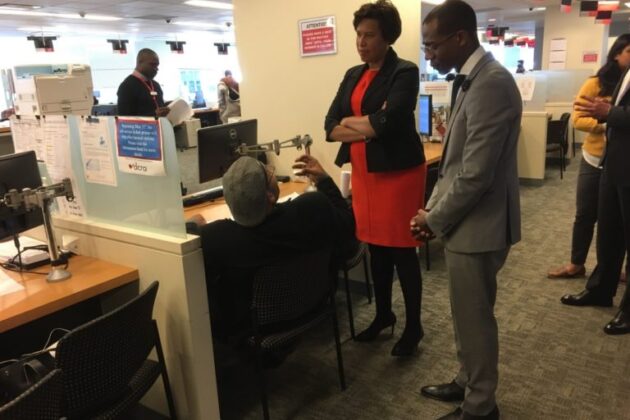DCist: That Whole ‘Uber, But For Housing Inspectors’ Program Is Up And Running

DCRA has hired hundreds of new “inspectors” in recent months, but they’re not full-tme employees—they’re contracted workers that the agency’s head has described as Uber for property inspectors. CLC Senior Attorney Kathy Zeisel spoke with Martin Austermuhle of WAMU about the need for more, professional housing inspectors in the District and how the creation of a separate agency, the Department of Buildings, could better protect and serve tenants.
Allen and the other new inspectors aren’t formally DCRA staff, but rather trained contractors that conduct inspections when needed. They are paid anywhere from $30 to $100 per inspection. And that concerns Kathy Zeisel, an attorney at the Children’s Law Center, which has testified to the council on numerous occasions about what they say are DCRA’s failure to keep residents safe.
“We have a lot of concerns that, when you’re paying someone $40 an inspection and when they’re not required to come to court and they have to have no background, that their inspections won’t be reliable,” she says. “We’d rather see increased professionalization, increased training and increased qualification of the [staff] inspectors.”
DCRA says the inspectors “may be” required to give a statement or testimony in court.
Zeisel also says that DCRA simply needs to hire more of its own staff inspectors. To check on housing conditions alone, she says the agency currently has one inspector for every 8,100 rental units in the city. Philadelphia, by comparison, has one for every 4,500 units. Zeisel says D.C. needs to do better: she’d like to see an inspector for every 2,000 units of housing.
And she says she doesn’t have much faith that initiatives like Chrappah’s resident-inspector program will make a dent within the agency’s existing structure.
“We have seen DCRA try a lot of innovations and end up at the same place. It doesn’t have the the willpower to create the systemic and ongoing change that’s needed. And we need that separate agency to get there,” Zeisel says.
Zeisel is referring to the bill that to split DCRA into two separate agencies, with the expectation that smaller agencies better focused on specific missions would be more responsive to residents.
